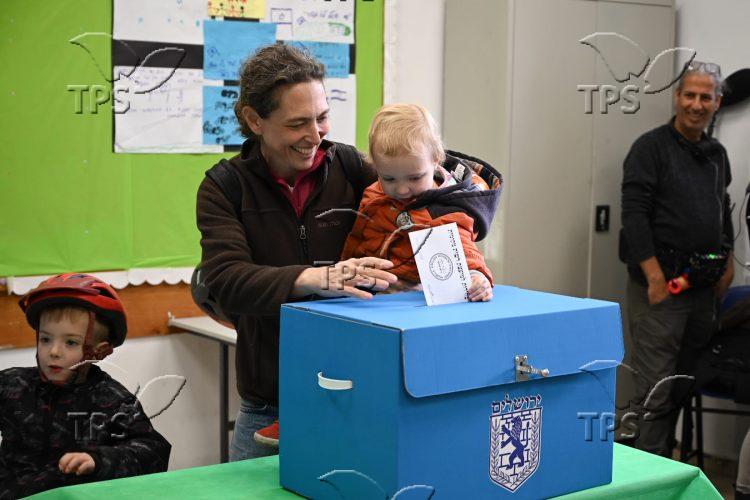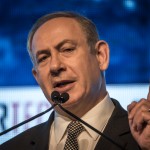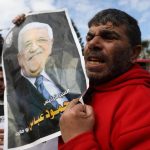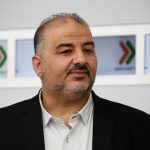Israelis Go to the Polls in Local Elections Delayed by War
Jerusalem, 27 February, 2024 (TPS-IL) -- Across Israel, citizens began going to polling stations on Tuesday to cast their votes in municipal elections delayed by the Gaza war.
As of 10 A.M., voter turnout stood at 3.9% of the 7.1 million Israelis eligible to vote, according to the Interior Ministry.
While arrangements were made for soldiers to cast their ballots, 180,000 evacuees from 11 communities near the Gaza and Lebanon borders will have to wait till November 19 to vote.
Relatives of hostages being held in Gaza are traveling to polling stations to “to remember the abductees – those who cannot exercise their right to live in Israel and vote,” explained Boaz Zalmanovich, whose 85-year-old father, Aryeh was kidnapped from Kibbutz Nir Oz on October 7. The family was notified in December that Zalmanovich died in captivity and his body is still in Gaza.
At least 1,200 people were killed and 240 Israelis and foreigners were taken hostage in Hamas’s attacks on Israeli communities near the Gaza border on October 7. Of the remaining 134 hostages, Israel recently declared 31 of them dead.
Voting was marred by violence in the Arab village of Tuba-Zangariyye in northern Israel. Two people were injured when a fight between two families broke out at the polling station. Police arrested four people in the incident.
To ensure the safety of the elections, the military’s Home Front Command, Israeli Police and Interior Ministry will hold security evaluations throughout the day. In the event of rocket attacks, authorities will issue instructions on how to vote, and if necessary, postpone the elections.
Voting is taking place in 233 cities, regional councils and local councils throughout the country. Soldiers will cast their ballots from makeshift balloting locations in the Gaza Strip, army bases, or hospitals, while displaced families will cast absentee ballots from where they are staying.
Races worth watching include Jerusalem, where Sundus El-Khot, a teacher, is vying to become the first Arab to join the 31-seat council.
Jerusalem has a population of around one million, of whom some 700,000 are eligible to vote. This includes 420,000 Jews and 280,000 Arabs. Arab voters include Israeli citizens as well as roughly 150,000 Palestinian non-citizens who have residency status.
Palestinians with residency status are entitled to vote in municipal elections and receive social benefits, but are not allowed to vote in national elections or hold a mayoral office.
El-Khot is an Israeli citizen who lives in western Jerusalem.
However, there is a longstanding taboo against Arab participation in city hall, as Arabs told the Tazpit Press Service that campaigning “legitimizes” Israeli control over the city.
Arab parties and individuals have never garnered enough votes to receive a city council seat. Historically, Arab participation in local elections has been around five percent.
Jerusalem Mayor Moshe Lion is expected to be re-elected by a wide margin.
In Tel Aviv, Mayor Ron Huldai, who has served for 25 years, is being challenged by Maj. Gen. (res.) Orna Barbivai, the highest-ranking woman in the Israel Defense Forces and former Minister of Economy and Industry.
Polls close at 10:00 PM and Israeli law forbids publishing exit polls until then.
Separately, national elections for the Knesset, by law, must be held no later than October 27, 2026.
Opposition leader Yair Lapid is leading efforts for early national elections, despite the war.
“It is technically possible, it is possible in terms of the army, it is even possible to do it without tearing the people apart,” Lapid said. “In the last few weeks, people held parlor meetings, put up posters, activated campaign staff, and no disaster happened. Israeli democracy worked.”







